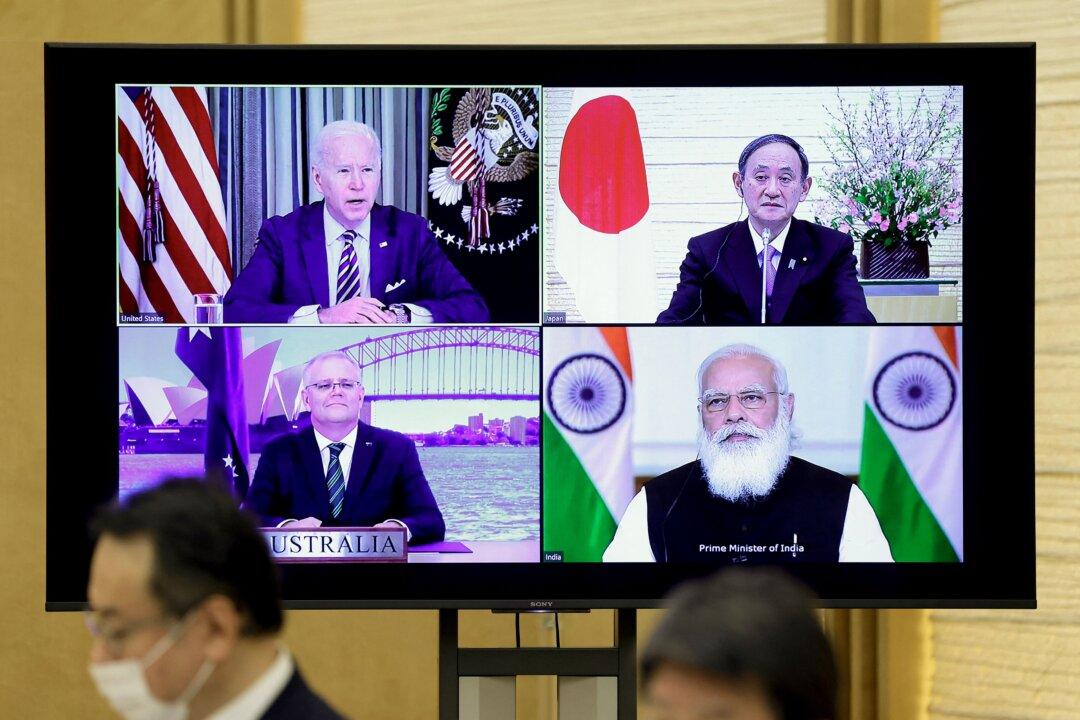The leaders of Australia, India, Japan, and the United States will meet at the White House on Sept. 24 for the first in-person leaders’ summit of the Quadrilateral Security Dialogue, colloquially known as “the Quad,” to discuss issues ranging from emergent technologies and global supply chain security to climate change and the future of multilateral strategy regarding China.
Michael Green, senior vice president for Asia at the Center for Strategic and International Studies (CSIS), says the Quad is important in providing stability to the Indo-Pacific region amid destabilizing efforts of the Chinese Communist Party (CCP).




